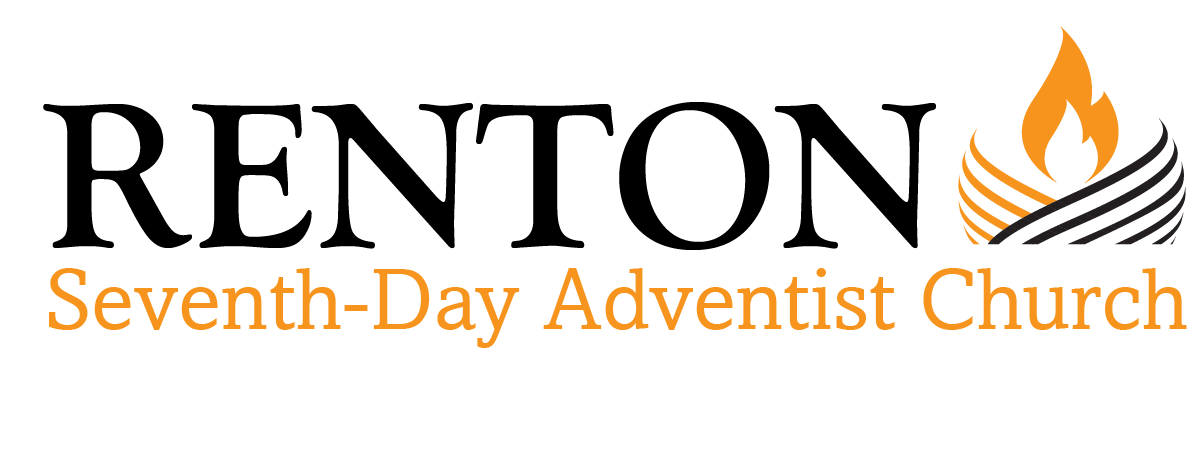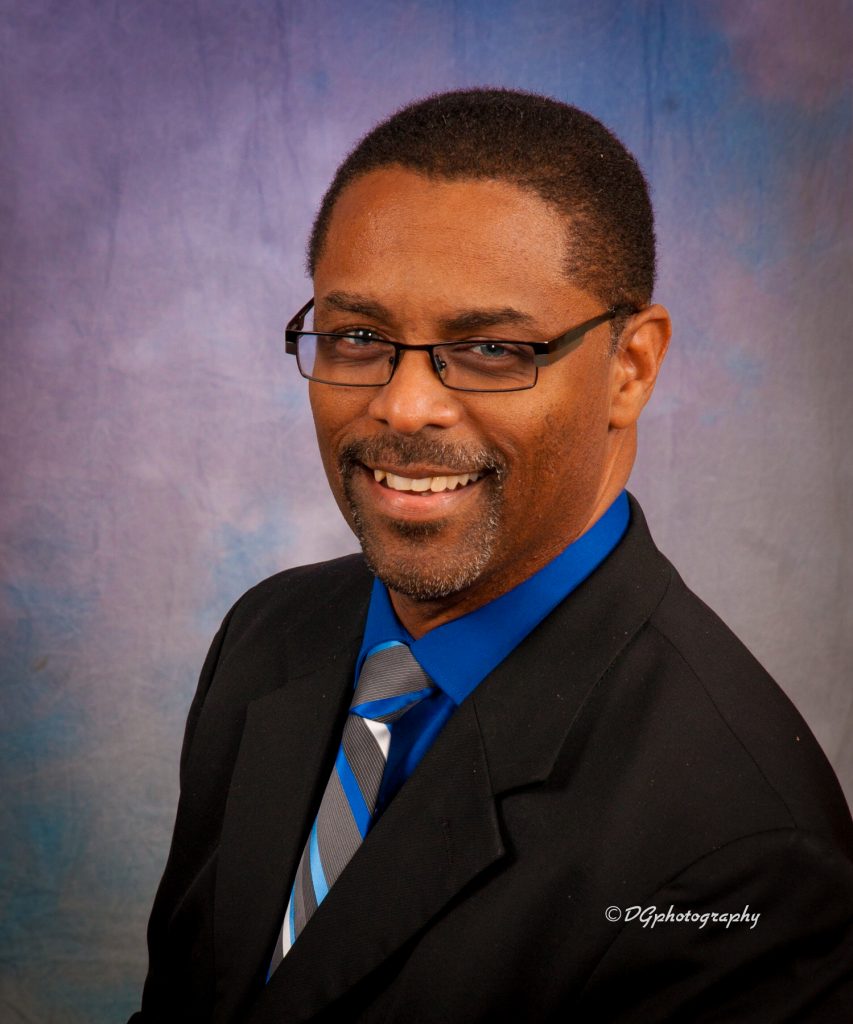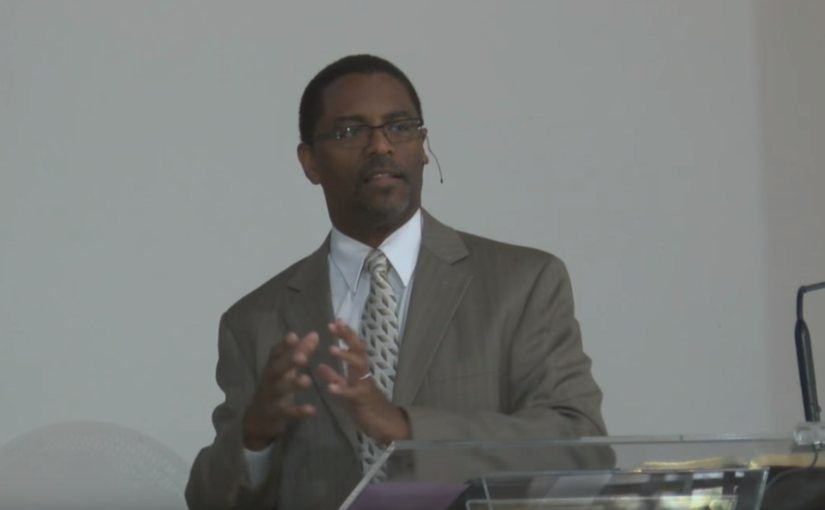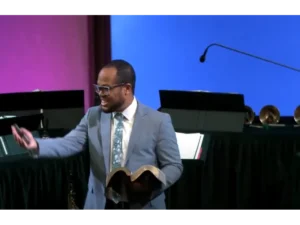On Sabbath we continued our journey through the beloved 23rd Psalm asking the question: if the Lord is our Shepherd and there’s nothing we lack, shouldn’t we be happy all the time? David himself answers that question in Psalms 6:3; 22:1; 38:4-9. These Psalms show that even those who have the Lord as their shepherd experience times of guilt, pain, loneliness, and depression.
So, if David, who boasts about the Shepherd, struggled with these challenges, what then is the 23rd Psalm about? It’s about the Shepherd! The 23rd Psalm does not teach that believers have no cares, but that we have a God who cares for us! It is not an “easy button” in a crazy world, but rather a “reset” button to reboot our faith.
The first action that God initiates is He makes me lie down (see vs. 2). Sheep won’t lie down unless four things are equalized in their lives—fear, friction, flies, and food. They can’t be scared, fighting amongst themselves, pestered by insects, or hungry. But nothing quiets and reassures the sheep like seeing the shepherd in the field. God’s presence restores my soul. “I will both lie down in peace, and sleep; for you alone, O Lord, make me dwell in safety” (Psalm 4:8).
When the Lord is your shepherd, wherever you are—a prison cell, a hospital room, or a ship at sea—there are green pastures. Therefore, rest for the stressed comes when we practice the presence of God. (See Psalm 16:11.)
Continuous conflict and jealousy within the flock makes the sheep edgy and irritable. The same is true with people in the church, too. But God’s presence puts an end to rivalry. (See 1 Tim. 6:6; 2 Cor. 13:11.) When I practice the presence of God, He causes me to lie down my pride and need to be tops, first, and right. I’m content to be with Him and He gives me joy. I grow up and encourage others instead of competing with them.
Finally, in order for sheep to lie down, they must be free of hunger. Just as God provided manna from heaven to feed his “flock” in the wilderness so they could lie down and rest in Canaan, He provides His words to us so we, too, will find rest for our souls. Our ability to lie down and be restored depends on how much of the “new manna” we’re eating. There should be a flow of the milk and honey of the word from us because of our constant feeding on the words of Christ and assimilating His teachings into our lives. The words of Christ are the green pastures that we feed on and rest in (John 6:63).
He leads me beside quiet waters. Sheep don’t like rushing or noisy water. Still water can be found in pools from mountain dams, wells or cisterns the shepherd digs. It is also found in the early morning dew on the grass. The Psalmist knew this and said, “O God, You are my God;
Early will I seek You;
My soul thirsts for You;
My flesh longs for You
In a dry and thirsty land
Where there is no water” (Psa. 63:1) Morning dew evaporates as the sun rises. The lesson for us: Meet the Shepherd early, before the heat of the day and He will restore your soul. Jesus is our living water. He leads us to Himself! (See Jn. 7:37.)
Finally, He restores my soul. Another way of saying this is that He turns my life right-side-up. Rewing to Psalm 73:2,23, 24, 28. There is rest for the stressed when I make the Lord My refuge. I follow His counsel and stay near to God.
In a unique way, every Sabbath, God pushes the “reset” button and gives me a refuge in time–24 hours to lie down and refresh my relationship with Him. “There remains, then, a Sabbath-rest for the people of God” (Heb. 4:9). God knew rest was necessary in the beginning. He knew rest was important in the wilderness and in the journey between sin and paradise–so important He engraved it on tables of stone. And He knows today, in our world of noise and pressure and speed and emptiness and chronic and clinical depression, we need it now more than ever. There is help for the depressed and rest for the stressed as we enter into Sabbath-rest with the Shepherd.
Psalm 23 gives us a radically new look at God and how we relate to Him in real life—life that is filled with barrenness, hunger, thirst, restlessness, agitation, wrong turns, danger, fear, death, enemies, disease, and abandonment. The poem does not give us an unrealistic, Hallmark-card, or Thomas-Kincaid picture of life where all is peace and light. Rather, it gives us a picture of God who, through His tremendous labor, unrelenting energy, constant companionship, and dogged determination, makes it possible for us to thrive and find contentment in this sin-scorched desert of sin and sorrow. Meet Him early and let Him reset your life today. –Pastor Randy





